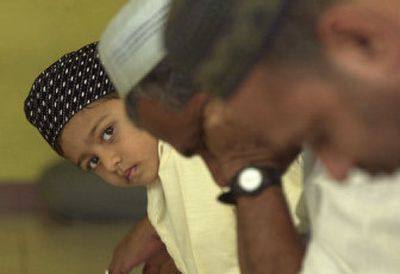Sri Lankans fear civil war with rebels about to start

COLOMBO, Sri Lanka – When the clock strikes midnight, Sri Lanka’s Tamil Tiger rebels change a note at the top of their Web site. The cease-fire agreement “enters into 1409 days today,” it read Monday.
What many Sri Lankans are asking, though, is when will the updates stop – and the cease-fire end?
In a surge of violence, 45 soldiers have been killed and 71 wounded in December ambushes blamed on the rebels. Government troops have killed seven suspected rebels. The two sides have traded accusations about the slaying of a pro-rebel lawmaker at Midnight Mass on Christmas Eve.
Residents of this island nation worry the tit-for-tat killings could become all-out war.
“Very definitely, there are indications” of a return to war, said retired Air Marshal Harry Goonetilleke. The two-decade war between the Liberation Tigers of Tamil Eelam and the Sri Lankan military ended with a 2002 truce after 65,000 deaths, 1.6 million people displaced and large parts of northern and eastern Sri Lanka under Tiger rule.
But after six rounds of peace talks, negotiations ended in April 2004. An uneasy peace has held ever since.
The last talks failed over the rebel demand for autonomy, which the government believed could be a major step toward dividing the nation of 19 million into one state for majority Sinhalese and another for the minority Tamils. President Mahinda Rajapakse won Nov. 17 elections on a pledge that he would never allow the country to be divided.
The Tigers have already created a de facto state in the island’s north and east, home to most of the country’s 3.2 million Tamils, complete with their own military, judicial system and even traffic police.
Suddenly, though, many observers are worrying that the Tigers, with the spate of attacks on government forces, may be trying to begin the fight again.
“The LTTE appears intent on forcing a war upon the government” said Jehan Perera, an independent political analyst. “The LTTE is making it evident that it is prepared for war.”
In the latest incident, five Tamil civilians believed to be working for the rebels were killed Monday in the port city of Trincomalee when grenades they were carrying exploded before they could throw them at a troop convoy, military spokesman Brig. Prasad Samarasinghe said.
The rebels may want war now because they may be ready for it – while the government is not.
“The LTTE has tons of money and in the past three years they have regrouped and rearmed with latest weapons smuggled in,” said Goonetilleke. In the past three years, three rebel ships have been stopped or chased away trying to unload arms.
The rebels have held back from war, at least in part, because of their wish for recognition as a political movement. Many countries, including the United States and India, now call them terrorists.
“The LTTE’s strong desire for international recognition is a factor that needs to be built into any government strategy” for talks, said Perera.
The rebels have denied any involvement in recent killings and say they are ready for talks. They accuse the government of trying to isolate them from the international community.
However, the careful planning and execution of recent attacks make the Tigers the main suspects, given their expertise.
The rebels are considered a formidable military machine. They recruit boys as young as 13 and make members wear cyanide capsules around their necks so they can commit suicide if captured. They run training camps and equip their 3,000-4,000 fighters with tiger-striped uniforms and sophisticated arms. And they have tens of thousands of sympathizers.
On the other hand, the Sri Lankan government is cash-starved.
In the 2006 budget, the defense allocation of $892 million has little set aside for new weaponry, said Goonetilleke. The new military commander, Lt. Gen. Sarath Fonseka, admits that much of the military hardware is obsolete.
The rebels draw their funds from an estimated 800,000 Tamil expatriates, including many who fled the country after the 1983 anti-Tamil riots that also saw the beginning of the civil war.
“Like many Sri Lankans, I think we have hope,” said Sujatha de Silva, a resident of Colombo who is also worried about war breaking out anew.
“But the deaths are scary and may be pointing at something dreadful.”